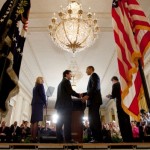Seventh Circuit: Earlier Sentence Served in Juvenile Detention Facility Can Make Defendant a Career Offender
 After pleading guilty in federal court to various drug-trafficking offenses, Isaiah Gregory received an eye-popping sentence of 327 months in prison — more than 27 years behind bars. Driving this extraordinary sentence was the district court’s finding that Gregory was a “career offender” under the federal sentencing guidelines. It was the career offender guideline that raised Gregory’s guidelines range from either 120-135 months (as he calculated it) or 121-151 months (as the government calculated it) to 262-327 months. Thus, the career-offender finding likely added more than fourteen years to Gregory’s sentence.
After pleading guilty in federal court to various drug-trafficking offenses, Isaiah Gregory received an eye-popping sentence of 327 months in prison — more than 27 years behind bars. Driving this extraordinary sentence was the district court’s finding that Gregory was a “career offender” under the federal sentencing guidelines. It was the career offender guideline that raised Gregory’s guidelines range from either 120-135 months (as he calculated it) or 121-151 months (as the government calculated it) to 262-327 months. Thus, the career-offender finding likely added more than fourteen years to Gregory’s sentence.
Although the term “career offender” may conjure up images of a hardened criminal with a rap sheet down to your knees, the guidelines require only two prior felony convictions of either a crime of violence or a controlled substance offense in order to trigger the career-offender sentence enhancement.
Even at that, Gregory hardly seems the sort of defendant that the Sentencing Commission must have had in mind when it drafted the career-offender guideline. In particular, one of his two qualifying convictions was a $30 robbery he committed when he was only fifteen (he is now in his mid-20’s) — a robbery for which he was sent, not to prison, but to a juvenile detention facility. Although it is not clear that the conviction should have counted under the plain terms of the career-offender guideline, the Seventh Circuit nonetheless affirmed his sentence last week in United States v. Gregory (No. 09-2735).

